As children, we have all come across chapters which were all about Human Rights. Right to express your own opinions, right to educate, right to equality and right on not to be mistreated.
To deny people their human rights is to challenge their very humanity.
-Nelson Mandela
The way these rights have been allowing everyone to live in dignity, freedom, equality, justice, and peace can easily be correlated to the four rights of open source and web that is following the similar responsibility.
When I talk about open source or open web I am precisely talking about freedom to use, study, share and improve. In short the ability to use the internet to build and make something.
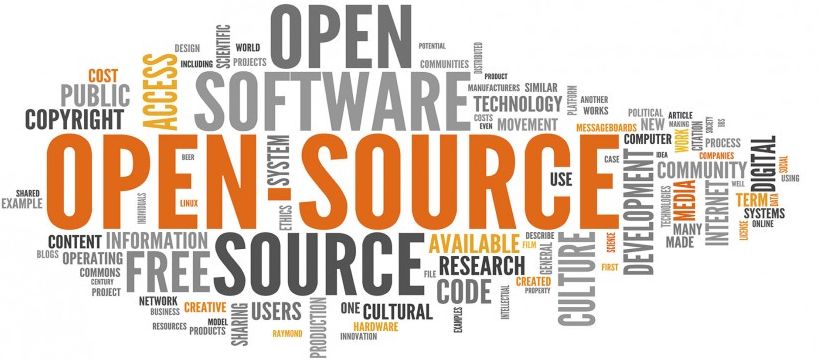
Open Source and Open web might have the same rights, but these terms as a whole have a very different meaning.
Past of the Open Source and Open web
Open source and Open web have played a vital job in the IT business. From frameworks to the biggest supercomputer, and from the handset in your pocket to the product working the sites, both these things have made a mark in the lives of its users.
The saga started during the 1950s when an eager figuring master and corporate research fabricated and imparted the product to its source code which was simply tuned in to the general thought of information trade.
Though the web was initially figured and delivered to draw in the interest for computerized data sharing between the researchers in colleges and foundations around the globe. There are fields in which it has made its stamp. New methodologies in fields as various as data (Open Data), legislative issues (Open Government), logical research (Open Access), training, and culture (Free Culture).
In the late 1970s – mid-1980s, the main programming licenses showed up. That is when programming items ended up secured by copyrights and trademarks.
In 1983, Richard Stallman started the GNU project to make a working framework with its source code which was accessible and open. The free software foundation was built up.
In the late 1990s, Linux started the enthusiasm of various organizations and government associations. A great deal of site-based new businesses was built up in those days which drove up interest with the expectation of complimentary web servers, in the primary line the Apache HTTP Server.
As the product business has developed, working frameworks developed into increasingly unpredictable and present-day applications.
Open source and Open web Presently and Ways in Which they are different
| Open Source | Open Web | |
| Definition | The original source code is made freely available. | Parts of the web that are public and viewable by everyone |
| Constitutes of | Source Code, Derived Works, Integrity of the source code etc | Ability to publish, code, access |
| Why is it important? | It promotes the development of powerful software tools. | Presents with a more informed public, civic participation, opportunities to learn |
Definition
Open Source
The term "open source" refers to something that people can modify and share because of the fact that its design is publicly accessible. It allows its users to copy, modify, or delete parts of the code under their own choice. The user is able to work functions of the open source on their own program where there is no consequence. "Source code" is the part of the software that most of the computer users don't ever see; it's the code computer programmers can manipulate to change how a piece of software—a "program" or "application"—works.
Open Web
Open web refers to the public side of the web. That can be easily accessible to people.
The public side of the Web. There are parts of the Web that are public and viewable by everyone and others that are private. The countries that do not restrict their citizens from viewing content on the Web. For me the Open Web is about the ability to openly do three kinds of things:
Constitutes of
Open Source
Open source doesn't just involve the accessing of the source code. The distribution terms of open-source include the following criteria:
- Source Code: The program must include the source code, and must allow distribution in the source code in a compiled form. Where some form of a product is not shared with source code, there must be well-publicized source code for no more than a reasonable reproduction cost, preferably downloading via the Internet without charge
- Distributed Works: Different licenses enable ps the programmers to change the software with several conditions attached. When you modify the source code, open source needs the inclusion of what you should alter.
- Distributed revision control systems: When many developers in different geographical locations change the data and files, these systems let the different versions and updates.
- Bug trackers and task lists: Open source allows large-scale projects to control the issues and keep a track of their fixes.
- Testing and debugging tools: Open source automates testing during system integration and debugs other programs.
Open Web
Open Web is all about the experience and the ability to do three types of things:
Publish: The content and the applications on the web in open standards allow the users to declare and publish the data online.
- Code and Implement: The web standards depends totally on the content and the applications which depend on it.
- Access and Use: The content, code, web applications, and the implementations can be accessed and used easily.
Why is it important?
Open Source
Open source is great because it promotes the development of powerful software which is increasingly reliant on. It has encourages things around. Things like:
- GitHub and Open Source
Adding to the open source can be a rewarding way to learn, teach, and build experience in just about any skill you can imagine. GitHub has been providing open source software to its users to use and explore. This helps in successful delivering of the projects. Developers have the power to create and control open source software with the help of Github. They can create a project that interests them to see its progress as it happens. They don’t have to build everything from scratch or make copies of their favorite projects, an experiment in private repositories, and tailor tools and features to meet the needs.
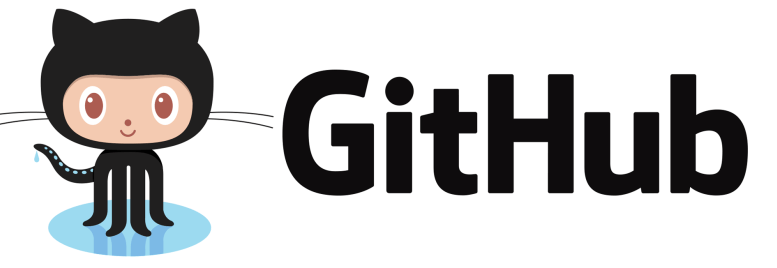
Drupal is an open source content management system (CMS) that powers an estimated 2% of all websites. One of the greatest benefits of using Drupal CMS is the fact that it is open source. That means according to the Drupal websites anyone can download, use, work on, and share it with others. Drupal allows continuous digital innovation at leading organizations like weather.com and NBCUniversal. With Drupal, marketers, and web developers can build and maintain great web, mobile and social experiences.
Drupal as an open source software has long-term viability. Selecting technologies means committing to solutions that will support an active, growing business over the long term, so it demands careful consideration and foresight.
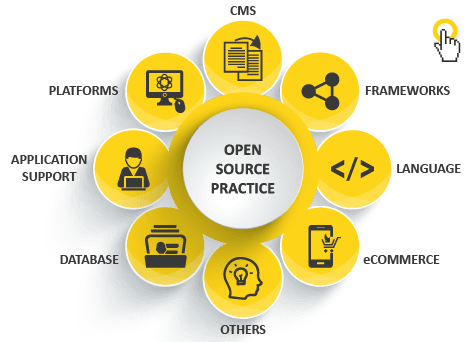
Open Web
An open web is a movement which goes up against some of the largest platform companies of the world that have control over our data, in short, it means positive progress of things like:
- A more informed public
- More civic Participation
- More opportunities to learn and connect with each other
The open web is decentralized
The decentralized web or Dweb could be an opening to take charge of our data back from the big tech firms that have been spying and beholding on it from quite some time now. A big example of it is Facebook which recently got under the radar of security issues.
Determining the best type of software depends on the business needs and objectives. The best way to compare is to look at some of the biggest differences between the two types.
Are open source and open web at risk?
Open source and open web are losing in its genre. Open source does have restrictions and risks that comes under the drama. Social issues such as data protection and privacy, political issues such as net neutrality and copyrights have been compromised through things like automation of fake news, the use of CMS to take out a step in future and the idea where there is no information of the people who are being interacted.
- Open Source Software Security Risks
Open source security vulnerabilities are really lucrative opportunity for the hackers. Once discovered by the security research community, open source vulnerabilities and the details on how to carry out the exploit are made public to everyone. This provides hackers with all the information that they need in order to carry out an attack.
- Open Source Software Licensing Compliance Risks
Every open source software component, along with its dependencies, comes with a license. When we use an open source component in our project, we are agreeing to a set of terms and conditions that we must comply with. This can become murky territory for anyone who is not well versed in the ins and outs of open source licensing.
- Open Source Software Quality Risks
While an organization invests many resources in the quality assurance of its proprietary code, it appears many development teams marginalize or overlook checking an open source component’s quality. Obviously, we all want our final product to be stable and consistent under pressure.
So now the question is- how to solve it?
Google is presenting all of the company's open source projects under one roof. Any company considering releasing some of its code under open source licenses might want to take a gander at Google's new website, Google Open Source. It's not a repository, for source code you'll still have to go to GitHub or the company's own Git service, but more of a catalog of Google's open source projects, with each listing including information such as how the company uses the software, its license and so on.
Google is no newcomer to open source. In its early days, it built its infrastructure on the back of freely available software, like Linux, and has been a major contributor to the open source canon ever since. Kubernetes would be an example of a project it
Future of Open Source: How can it win?
Today, open source is the default. Every major technology starts there, whether that’s a cloud, AI, mobile or containers. To win the Open source you can follow three methods:
- Start blogging
- Increase in the User experience
- Define
As the Internet continues to expand in new ways, so do innovations and revolutions. Anyone can contribute to open source projects. And, today we're seeing open hardware, the Internet of Things, and the Maker movement takes hold and changes the way we are solving problems and shaping the world.
Google Amp Project and Open Web
The AMP Project is an open-source initiative that is aiming to make the web a better place for all. The project enables the creation of websites and the ads that are consistently fast, beautiful and high-performing across devices and distribution platforms. Moreover, the sites that have adopted AMP have seen encouraging gains in site performance and conversions (which presumes a correlating better site user experience). These and other noted benefits have led Google to begin with the working toward the technologies utilized by AMP and folding them into open web standards.
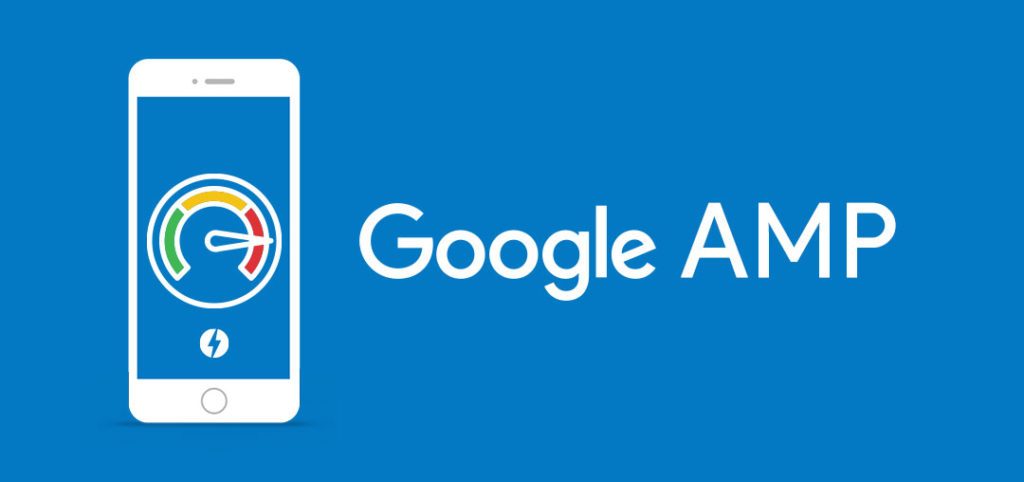
Business Eco-System and Open Source
We have seen open source growth and changes in different approach on how to build a business model. Technology has changed a lot, thus the innovation has been taking place in open source projects to an extent. Overall, the world of software would be much different without open source software.
Wrapping Up
Open Source has become dominant on the web over time. Today over 90% of the CMS market is open source. In fact, it’s nearly the de-facto license model for the all-things web. To say that the internet is an open source would not be an exaggeration, it’s that dominant.
At Opensense Labs, building a successful service model is no task and we are always ready for the challenge. We bring features and capabilities into a new direction with all the abilities of open source. Ping us on [email protected] to build an open source project that would form a building block for your futuristic applications.
Subscribe
Related Blogs
Trek n Tech Annual Retreat 2025: A 7-Day Workcation of OSL
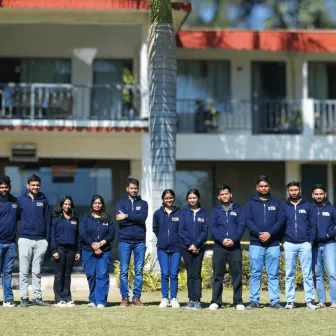
OSL family came together for the Trek n Tech Annual Retreat 2025, a 7-day workcation set amidst the serene beauty of…
Exploring Drupal's Single Directory Components: A Game-Changer for Developers
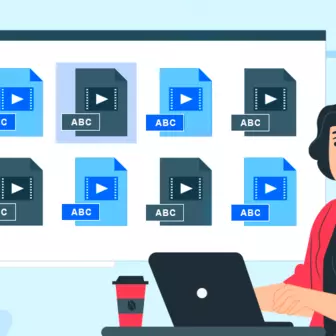
Web development thrives on efficiency and organisation, and Drupal, our favourite CMS, is here to amp that up with its…
7 Quick Steps to Create API Documentation Using Postman
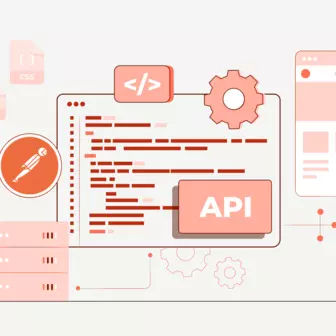
If you work with API , you are likely already familiar with Postman, the beloved REST Client trusted by countless…




